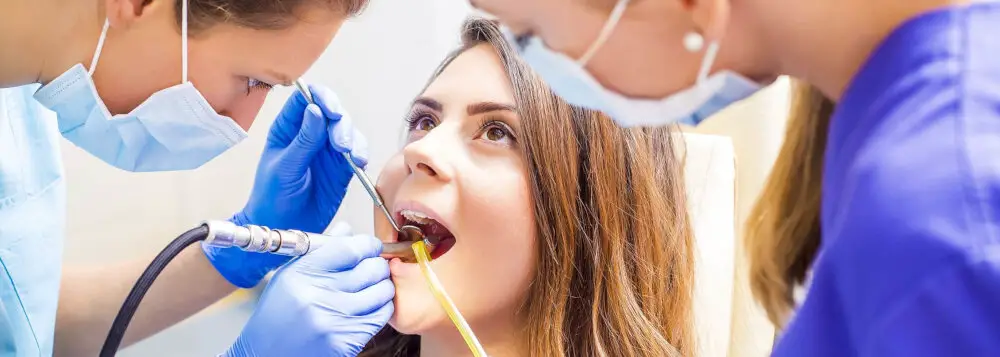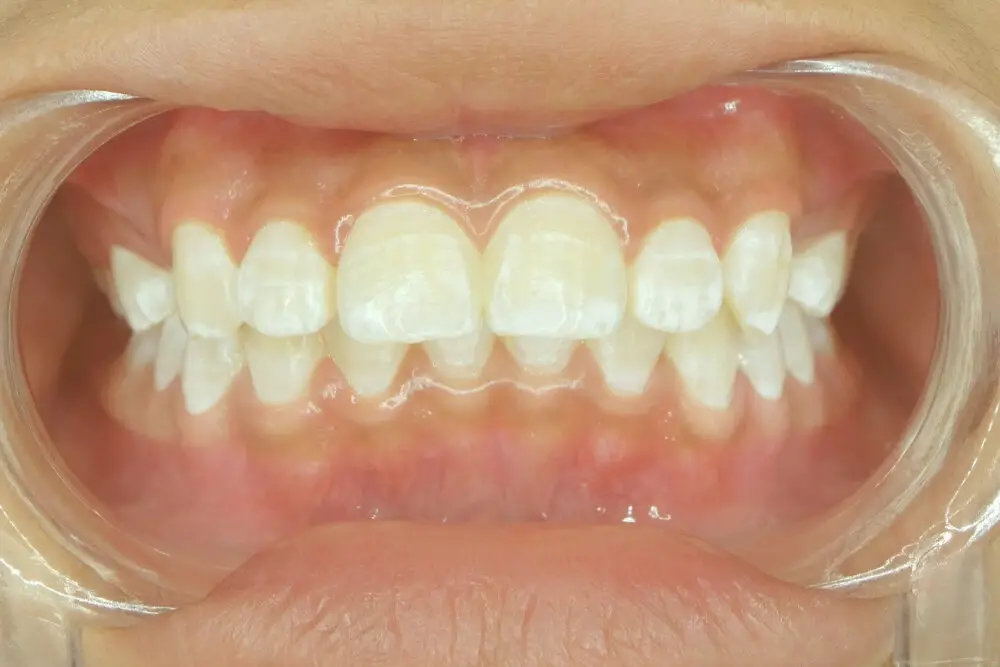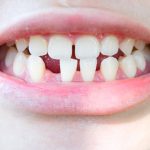Chew on This: A Comprehensive Guide to What Rabbits Can Eat for Healthy Teeth

Rabbits are herbivorous animals that require a diet rich in fiber, vitamins, and minerals to maintain healthy teeth and overall well-being. A rabbit’s teeth are constantly growing, and they need to chew on various foods to help wear them down and prevent dental problems. However, not all foods are suitable for rabbits, and it’s essential to know what foods to feed them to keep them healthy. In this comprehensive guide, we will explore what rabbits can eat to maintain healthy teeth and prevent dental problems. We will delve into the importance of a high-fiber diet and how it can benefit your rabbit’s overall health. We will also discuss the different types of hay, vegetables, and fruits that are safe and suitable for rabbits to eat. Additionally, we will provide tips on how to introduce new foods to your rabbit’s diet and how to balance their diet to ensure they receive all the necessary nutrients. By the end of this guide, you will have a better understanding of what to feed your rabbit to keep their teeth healthy and maintain their overall health and well-being.
Dental health is absolutely crucial for rabbits, as their teeth never stop growing and must be worn down through regular chewing. A rabbit with dental problems can suffer from pain, difficulty eating, and even life-threatening conditions such as abscesses or malocclusion. A major part of maintaining good dental health for rabbits is providing them with a diet that promotes chewing and grinding, as well as regular check-ups with a veterinarian who specializes in exotic animals. By paying careful attention to their dental health, rabbit owners can help ensure that their furry friends live long, happy lives free from the discomfort and dangers of dental problems.
Hay

Hay is a staple food for rabbits and is essential for their dental health. Rabbits have continuously growing teeth, and they need to chew on hay to wear down their teeth and prevent overgrowth. The high fiber content of hay also helps keep their digestive system healthy and prevents blockages. There are different types of hay available, including timothy hay, orchard grass hay, and alfalfa hay. Timothy hay is the most common and suitable for most rabbits because it is low in calcium and high in fiber. However, young rabbits and pregnant or nursing rabbits may benefit from the higher calcium content in alfalfa hay. It is essential to make sure that the hay given to rabbits is fresh and high quality. Good quality hay should be green, fresh-smelling, and free of dust and mold. Rabbits should have access to hay at all times, and their hay should be changed daily to ensure freshness. In addition to being a crucial food for rabbits, hay can also be used as a bedding material in their living area. It provides a soft, absorbent surface for the rabbits to rest on and helps keep their living area clean and dry. Overall, hay is an essential part of a rabbit’s diet and plays a crucial role in their dental and digestive health.
Hay is a crucial part of any rabbit’s diet, not only for digestive health but also for dental health. Rabbits have continuously growing teeth, and they need to chew on tough, fibrous materials to wear their teeth down and prevent them from growing too long. Hay is the perfect food for this purpose, as its coarse texture requires a lot of chewing, and it also provides the necessary fiber for a healthy digestive system. Chewing on hay also promotes saliva production, which helps to prevent dental disease by flushing away harmful bacteria and food particles. Therefore, providing your rabbit with a constant supply of hay is essential for maintaining healthy teeth and overall well-being.
There are several types of hay available, including Timothy, Orchard, Alfalfa, Bermuda, and Meadow. Timothy hay, which is the most common type, is low in calcium and high in fiber, making it the best choice for adult rabbits. Orchard hay is also a good option for rabbits, as it is soft and sweet-smelling, and contains a good balance of nutrients. Alfalfa hay is high in calcium and protein, which makes it a great choice for young rabbits and nursing mothers. Bermuda hay is low in protein and high in fiber, while Meadow hay is a mixture of different grasses and may vary in quality. Overall, Timothy and Orchard hays are the best options for adult rabbits, while Alfalfa hay is best for young rabbits and nursing mothers.
Vegetables

Vegetables are an essential part of a rabbit’s diet and are crucial for maintaining healthy teeth. Rabbits have teeth that continuously grow throughout their lives, and they need to chew on fibrous and tough foods to wear down their teeth and prevent them from overgrowing. Vegetables are a great source of fiber and nutrients that rabbits need to stay healthy. They also provide them with the necessary chewing exercise to keep their teeth in good condition. Some of the best vegetables for rabbits include dark leafy greens like kale, spinach, and romaine lettuce, as well as crunchy vegetables like carrots, celery, and bell peppers. It is essential to incorporate a variety of vegetables into a rabbit’s diet to ensure they are getting all the necessary nutrients and fiber they need. Vegetables that are high in sugar or starch should be given in moderation to prevent digestive issues. It is also important to wash vegetables thoroughly before feeding them to rabbits to remove any pesticides or harmful chemicals. With a well-balanced diet that includes plenty of vegetables, rabbits can maintain healthy teeth and overall health.
Rabbits have teeth that never stop growing, and to keep them from getting too long, they need to constantly chew on hay, grass, and vegetables. Some vegetables that are particularly good for rabbit teeth include carrots, Brussels sprouts, and broccoli. These veggies are high in fiber and require a lot of chewing, which helps to wear down a rabbit’s teeth and keep them healthy. In addition to promoting good dental health, feeding your rabbit a variety of vegetables can also provide essential nutrients and help prevent boredom. However, it’s important to introduce new foods slowly and in small quantities to avoid upsetting your rabbit’s digestive system.
When it comes to feeding your rabbit, it’s important to understand which vegetables are safe for them to eat. Some great options include romaine lettuce, kale, cilantro, and parsley. When introducing these vegetables to your rabbit’s diet, it’s important to do so gradually. Start by giving them a small amount and then gradually increase the amount over a period of a few days. This will give their digestive system time to adjust to the new food. It’s also important to wash all vegetables thoroughly before offering them to your rabbit to ensure that any pesticides or harmful bacteria are removed. By incorporating these safe vegetables into your rabbit’s diet, you’ll be helping to promote their dental health while also providing them with a nutritious and delicious treat.
Fruits

When it comes to a rabbit’s diet, fruits can be a great addition to their meals. Fruits are a great source of vitamins and minerals that can help keep your bunny healthy and happy. Some of the best fruits for rabbits include apples, bananas, strawberries, and blueberries. These fruits are not only delicious but also packed with nutrients that can help improve your rabbit’s overall health. However, it’s important to remember that fruits should only be given to rabbits in moderation. Too much fruit can cause gastrointestinal problems, such as diarrhea, which can be harmful to your bunny’s health. Additionally, fruits are high in sugar, so it’s best to limit your rabbit’s intake to one or two small pieces a day. By incorporating fruits into your rabbit’s diet in a balanced way, you can provide them with the nutrients they need while keeping their teeth healthy and strong.
Rabbits have continuously growing teeth, which means they need to chew on fibrous foods in order to wear them down and prevent dental issues. Some of the best fruits for rabbit teeth include apples, pears, and strawberries. These fruits are high in fiber and provide the necessary roughage to keep a rabbit’s teeth healthy. Additionally, fruits like blackberries and raspberries are also good for rabbits, as they contain antioxidants and other nutrients that can support overall health and wellbeing. However, it’s important to remember that fruits should only make up a small part of a rabbit’s diet, as they are high in sugar and can lead to obesity and other health problems if consumed in excess.
As a rabbit owner, it’s important to know what fruits are safe for your furry friend to eat. Some safe fruits for rabbits include apples, bananas, blueberries, strawberries, and pineapple. When introducing fruits to your rabbit’s diet, it’s important to do so gradually and in small amounts to avoid causing any digestive issues. Start with a small piece of fruit and monitor your rabbit’s reaction. If they tolerate it well, gradually increase the amount over time. Remember that fruit should only be given as a treat and not as a substitute for their regular diet of hay and fresh greens.
Treats and Supplements

Treats and supplements are a great way to spice up your rabbit’s diet and offer them something special. However, it’s important to keep in mind that treats and supplements should not make up the bulk of your rabbit’s diet. Instead, they should be given in moderation and as a supplement to their regular diet. Some great options for treats and supplements for rabbits include fresh fruits and vegetables, such as carrots, apples, and leafy greens. These treats can be given as a reward for good behavior or as a special treat to keep your rabbit happy and engaged. Supplements are also a great way to ensure that your rabbit is getting all the nutrients they need to stay healthy. Some supplements that are beneficial for rabbits include vitamin C, which can help boost their immune system, and probiotics, which can aid in digestion. Additionally, supplements such as hay cubes or pellets can provide extra fiber, which is essential for maintaining healthy teeth and digestive function. When it comes to treats and supplements for your rabbit, it’s important to do your research and choose options that are safe and healthy for your furry friend.
When it comes to maintaining good dental health for your pet rabbit, there are a variety of treats and supplements that can help. One of the best options is hay, which not only helps wear down your rabbit’s constantly growing teeth, but also provides essential nutrients. Other good options include fresh vegetables like kale and carrots, as well as chew toys made specifically for rabbits. You can also give your rabbit supplements like vitamin C and calcium to support strong teeth and bones. However, it’s important to remember that treats and supplements should never replace a balanced diet of hay, fresh vegetables, and a small amount of pellets.
When it comes to treating your rabbit, it’s important to be mindful of their safety and health. Some safe treats and supplements for rabbits include carrot tops, parsley, dandelion greens, and oregano. However, it’s important to introduce new foods gradually to avoid upsetting their digestive system. Start by offering a small amount of the new food and monitor your rabbit’s reaction over the next 24 hours. If there are no adverse effects, gradually increase the amount over the next few days. Remember to always provide fresh water and hay to your rabbit, as these are the foundation of their diet. By incorporating safe treats and supplements into your rabbit’s diet in moderation, you can provide them with a varied and healthy diet while promoting strong dental health.
Ensuring proper dental health for rabbits is crucial to their overall well-being. Rabbits have continuously growing teeth that require constant wear to prevent overgrowth and potential health issues. A diet that is high in hay and fresh vegetables promotes healthy teeth and digestion, while also providing essential nutrients. Neglecting dental care can lead to serious problems, such as malocclusion, abscesses, and even death. Therefore, it is essential to regularly monitor your rabbit’s teeth, provide proper nutrition, and seek veterinary care if necessary. By prioritizing dental health, you can ensure your furry friend has a happy and healthy life.
It is crucial to remember that rabbits have a sensitive digestive system and thus require a specific diet. Therefore, before making any changes to a rabbit’s diet, it is essential to consult with a veterinarian. A veterinarian can determine whether the changes are appropriate or harmful to a rabbit’s health. They can also provide valuable insights and advice on the best diet options for your rabbit, considering its age, weight, and overall health. Moreover, a veterinarian can identify any potential allergies or health concerns that may affect your rabbit’s dietary needs, ensuring that they receive the necessary nutrition for healthy teeth and overall good health.
Conclusion

In conclusion, it is evident that a rabbit’s diet plays a vital role in maintaining their dental health. By incorporating a variety of fresh vegetables, herbs, and hay, rabbit owners can provide their pets with the necessary nutrients to support healthy teeth and gums. It is also essential to avoid sugary and starchy treats that can lead to dental problems. By adhering to a well-balanced diet, rabbit owners can ensure that their beloved pets have a healthy and happy life. So, let’s chew on this guide and provide our fluffy friends with the best possible diet for their dental health.






